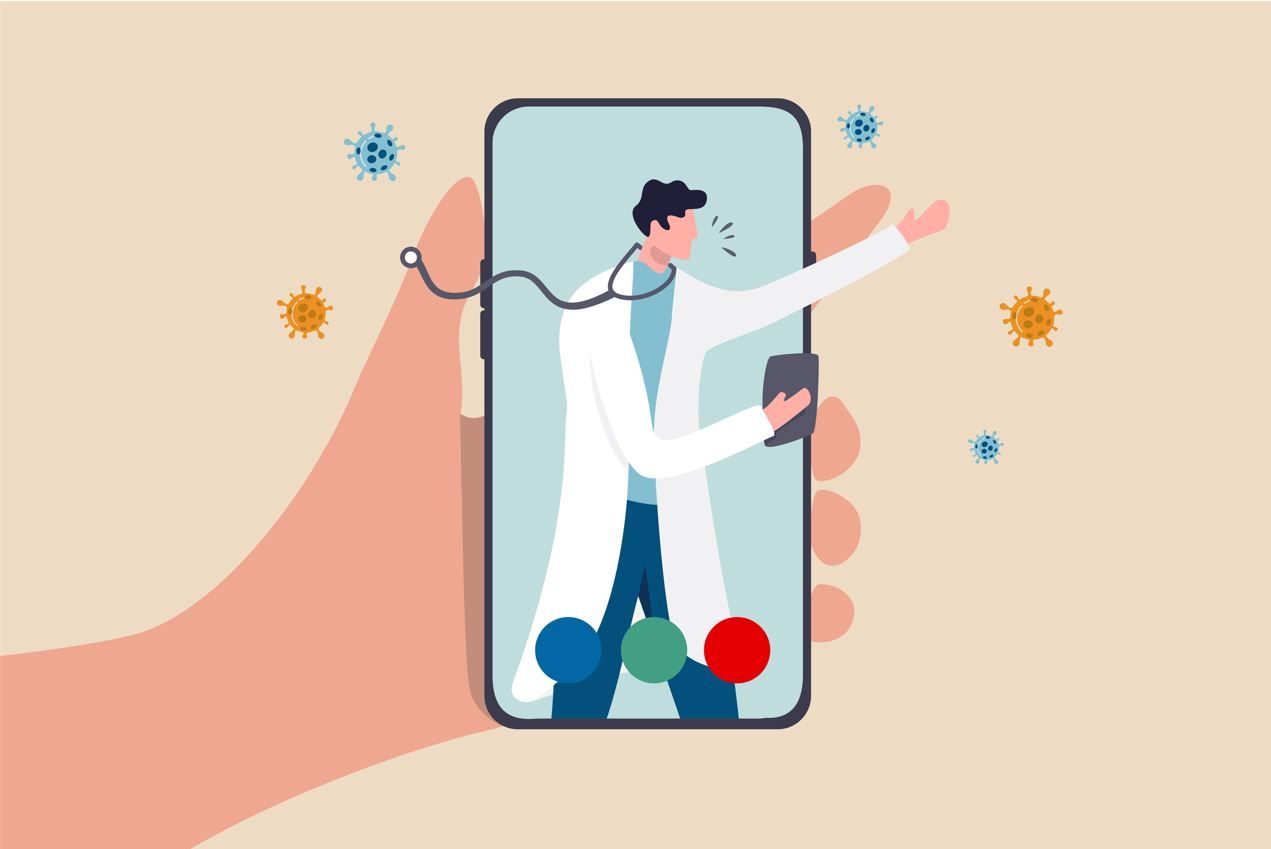- Clinical Technology
- Adult Immunization
- Hepatology
- Pediatric Immunization
- Screening
- Psychiatry
- Allergy
- Women's Health
- Cardiology
- Pediatrics
- Dermatology
- Endocrinology
- Pain Management
- Gastroenterology
- Infectious Disease
- Obesity Medicine
- Rheumatology
- Nephrology
- Neurology
- Pulmonology
Increased Availability of Telehealth Services, Medications for Opioid Use Disorder during COVID-19 Linked to Reduced Risk for Fatal Overdose
Findings from new study demonstrate the potential benefits of continuing telehealth services and medications for opioid use disorder.

The expanded availability of opioid use disorder (OUD)-related telehealth services and medications during the COVID-19 pandemic was associated with a reduced risk of fatal drug overdose among Medicare beneficiaries, according to a new study published in JAMA Psychiatry.
Findings showed that Medicare beneficiaries who initiated a new episode of OUD-related care during the pandemic and received OUD-related telehealth services had a 33% lower adjusted odds of a fatal drug overdose, even after researchers accounted for OUD and non-OUD care engagement and receipt of medications for OUD (MOUD).
“The results of this study add to the growing research documenting the benefits of expanding the use of telehealth services for people with opioid use disorder, as well as the need to improve retention and access to medication treatment for opioid use disorder,” said lead author Christopher M. Jones, PharmD, DrPH, director of the National Center for Injury Prevention and Control, Centers for US Disease Control and Prevention (CDC) in an agency press release. “The findings from this collaborative study also highlight the importance of working across agencies to identify successful strategies to address and get ahead of the constantly evolving overdose crisis.”
The cohort study was led by researchers at the National Center for Injury Prevention and Control, a part of the CDC; the Office of the Administrator and the Center for Clinical Standards and Quality, both part of the Centers for Medicare & Medicaid Services; and the National Institute on Drug Abuse, a part of the National Institutes of Health.
“During the COVID-19 pandemic, federal actions were taken to facilitate access to care for persons with OUD, including expanded telehealth, remote prescribing of buprenorphine, and expanded take-home doses of methadone from opioid treatment programs (OTPs),” write Jones and colleagues. Researchers aimed to answer the following question: Were these federal actions associated with a lower risk for fatal drug overdose among Medicare beneficiaries initiating a new episode of OUD–related care?
Investigators compared data from 2 cohorts of Medicare beneficiaries aged ≥18 years with OUD across 2 time periods. The first cohort (prepandemic cohort) was constructed with data from September 2018-February 2020 and included 105 162 beneficiaries (58.1% women, 67.6% aged 45-74 years). The second cohort (pandemic cohort) was constructed with data from September 2019-February 2021 and included 70 479 beneficiaries (57.1% women, 66.3% aged 45-74 years). Also, the researchers conducted an analysis to examine the demographic and clinical characteristics associated with fatal overdose in the pandemic cohort.
Findings
A larger percentage of persons in the pandemic cohort received OUD-related telehealth services than those in the prepandemic cohort (13 809 [19.6%] vs 590 [0.6%]; P<.001). Receipt of MOUD was higher in the pandemic cohort than in the prepandemic cohort (8826 [12.6%] vs 11 304 [10.8%]; P<.001), according to the study results.
Researchers observed a higher rate of all-cause mortality in the pandemic cohort (99.9 per 1000 beneficiaries; 7041 deaths) than in the prepandemic cohort (76.8 per 1000 beneficiaries; 8076 deaths) (P<.001). The rate of fatal drug overdoses was also higher in the pandemic cohort (5.1 per 1000 beneficiaries; n=358) than in the prepandemic cohort (3.7 per 1000 beneficiaries; n=391) (P<.001). The percentage of deaths due to a fatal drug overdose was similar in the prepandemic cohort (4.8%) and pandemic (5.1%) cohort (P=.49), according to investigators.
In a multivariable analysis of the pandemic cohort, researchers found lower adjusted odds of fatal drug overdoses among beneficiaries receiving OUD-related telehealth services (adjusted odds ratio [aOR] 0.67, 95% CI 0.48-0.92), and those receiving MOUD from OTPs (aOR 0.41, 95% CI 0.25-0.68) and buprenorphine in office-based settings (aOR 0.62, 95% CI 0.43-0.91) compared with receiving no MOUD. In addition, receipt of extended-release naltrexone in office-based settings was not associated with lower odds for fatal drug overdose (aOR 1.16, 95% CI 0.41-3.26).
Despite these “encouraging” results, authors noted that only 1 in 5 Medicare beneficiaries in the pandemic cohort received OUD-related telehealth services, and 1 in 8 received MOUD, “underscoring the need for continued expansion of these potentially life-saving interventions across clinical settings.”
“At a time when more than 100,000 Americans are now dying annually from a drug overdose, the need to expand equitable access to lifesaving treatment, including medications for opioid use disorder, has never been greater,” said senior author Wilson Compton, MD, MPE, deputy director of the National Institute on Drug Abuse, in the press release. “Research continues to indicate that expanded access to telehealth is a safe, effective, and possibly even lifesaving tool for caring for people with opioid use disorder, which may have a longer-term positive impact if continued.”
Reference: Jones CM, Shoff C, Blanco C, et al. Association of receipt of opioid use disorder-related telehealth services and medications for opioid use disorder with fatal drug overdoses among Medicare beneficiaries before and during the covid-19 pandemic. JAMA Psychiatry. Published online March 29, 2023. doi:10.1001/jamapsychiatry.2023.0310.
No Rx Required for COVID-19 Vaccination But ACIP Calls for Better Informed Consent Process
September 22nd 2025The ACIP on September 19 narrowly voted against requiring a prescription to get the shot but urged more detailed discussion of vaccine risks during shared decision making conversations.
